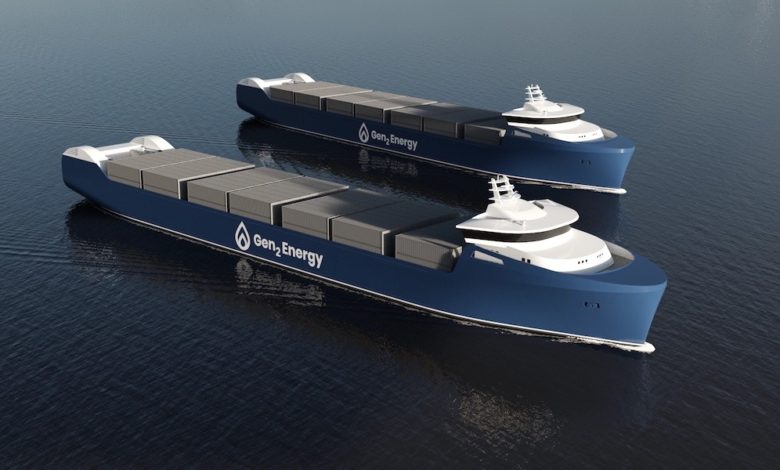
Norway’s Gen2 Energy has signed a contract with Sirius Design & Integration for the design of two specialised ships for the transport of large quantities of containers carrying compressed hydrogen.
The 190 m long ships, featuring hydrogen propulsion, will be able to carry 500 forty feet containers (feu).
Gen2 Energy is currently developing large scale production of hydrogen in Mosjøen in northern Norway with a view to exporting some of the product to neighbouring countries in northern Europe.
“The transportation of hydrogen is challenging, and we are very excited to be in the forefront of the development of technology, enabling cost effective, safe, and green logistical solutions. By working jointly with the experienced team of Sirius D&I we feel confident that we will reach our set goals and be ready to deliver hydrogen to our clients when our production start,” said Jonas Meyer, CEO of Gen2 Energy. The company has earmarked the first half of 2024 to start production at Mosjøen.
Currently the nascent seaborne trades of hydrogen are focused more on carrying it in liquefied form at very cold temperatures with the Japanese recently concluding a first shipment of hydrogen from Australia on the Susio Frontier, the world’s first liquefied hydrogen carrier. The backers of the Japanese project, led by Kawasaki Heavy Industries, are now working on larger ship designs.

When compressed, the density of hydrogen at 70.0 MPa is about 38 kg/m3.
The most common forty-foot container occupies a space with an internal volume of 33 m3.
So, one container can theoretically carry 1,254 kg or 1.2 metric tons.
500 containers would then represent a total cargo volume of 627 tons.